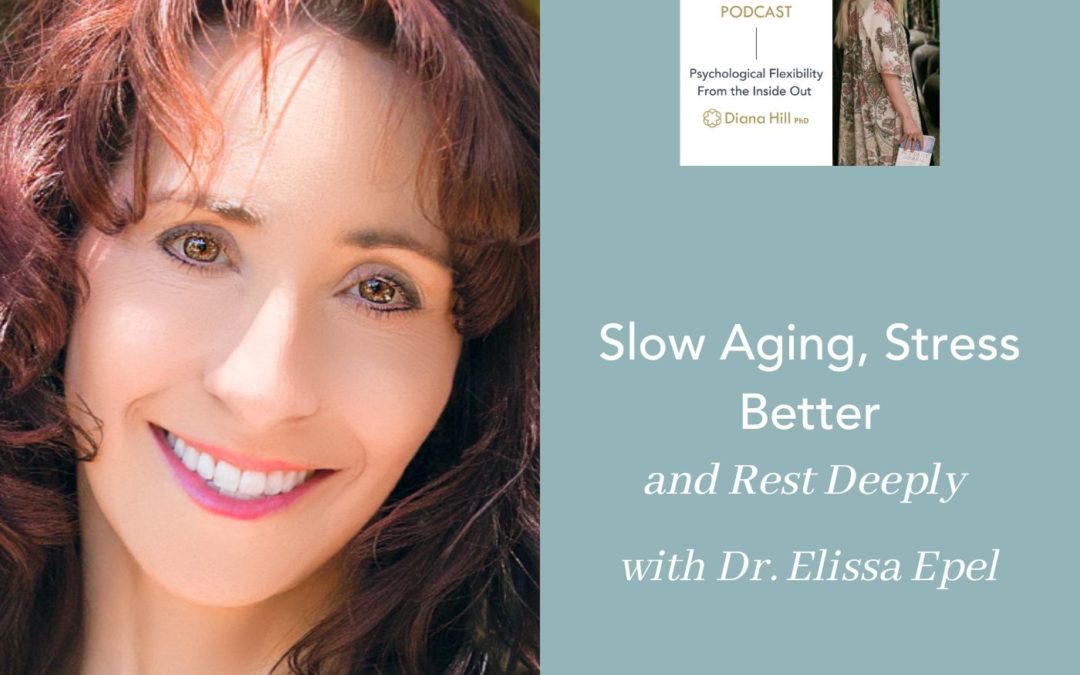We are all swimming in a sea of stress. In this episode, world expert on aging and stress Dr. Elissa Epel discussed the impact of stress on our telomeres, mitochondria, and cell aging and evidence-based strategies to stress better. We explore 7 practices to build stress resilience including the benefits of Wim Hof breathing, cold exposure, retreats, and mindset. You can’t eliminate stress, but you can stress better. Listen in to learn how!
Listen and Learn:
- What are telomeres and their role in cell aging
- How stress impacts your telomeres and mitochondria
- What bio-measures Dr. Epel uses to track her stress
- The link between mindset and stress resilience
- What is hormesis and how to do it
- 7 practices to increase stress resilience
- The benefits of deep rest
- What you can do first thing in the morning to protect yourself from stress
About Elissa Epel
Elissa Epel, Ph.D, is an international expert in stress, well-being, and healthy aging. She is a Professor and Vice-Chair in the Department of Psychiatry, at University of California, San Francisco. She is the Director of the Aging, Metabolism, and Emotions Center (www.amecenter.ucsf.edu), a member of the National Academy of Medicine, and past President of the Academy of Behavioral Medicine Research and Mind and Life Institute Steering Council. She studies how psychological, social, and behavioral processes accelerate biological aging, and well-being practices that can slow aging. She leads national NIH networks on Stress, and Emotional Well Being. She has won many awards for her research and her work was featured in venues such as TEDMED, The Today Show, CBS’s Morning Show, 60 minutes, National Public Radio, New York Times, and WSJ. She enjoys leading meditation retreats at venues such as World Economic Forum, Esalen, Blue Spirit Costa Rica, and 1440 Multiversity. Epel co-wrote “The Telomere Effect: The new science of living younger longer” with Nobel laureate Liz Blackburn, which is a New York Times best-seller, and in 30 languages, that integrates the science of cell aging with practical daily tips.
Related Resources
NEW, COMING SOON: Become a MORE Life in Process member to support the show. You’ll be designated as a “Founding Member” as we build a community to discuss ideas and our practice from the show. Founding Members receive exclusive bonus content from Diana.
- Download Your Daily Practice for this episode
- Find out what kind of Striver you are and get your free Skillful Striving Toolkit
- Want to learn more about ACT? Take Diana’s on-demand course Foundations of ACT
- Learn more about Elissa Epel
- Read the book The Stress Prescription
- Practice a Deep Relaxation with Diana on Insight Timer
- Research article on threat mindset and telomere length
- Research article on deep rest
- Hear more from Elissa Epel and her colleague Alexandra Crosswell talk about stress and rest by signing up for Diana’s From Striving to Thriving Summit!
- Guided Wim Hof Method Breathing from Wim Hof
Diana’s Events
- Reserve your spot in Diana’s Reset and Restore Retreat in Costa Rica in 2023!
- Meditate with Diana Starting January 20th
- Register for Diana’s Body Image workshop at Yoga Soup!
- Sign up for Diana’s From Striving to Thriving Summit!
- See Diana at an upcoming event
Connecting With Diana
Thank you for listening to Your Life in Process! Subscribe to the podcast for free on Apple Podcasts, Spotify, Google Podcasts. If you have any questions or feedback you can contact Diana by email podcast at yourlifeinprocess dot com or leave Diana an audio message at (805) 457-2776. Follow Diana at YouTube, Instagram, LinkedIn, Facebook, and Diana’s website.
Thank you to the team Craig, Angela Stubbs, and Ashley Hiatt. Thank you to Benjamin Gould of Bell & Branch for your beautiful music.
Remember when you become psychologically flexible, you become free.


